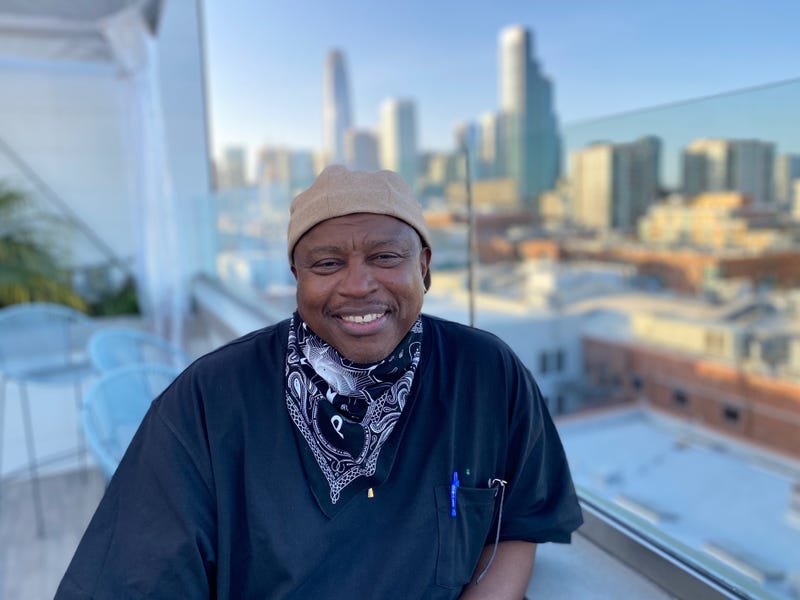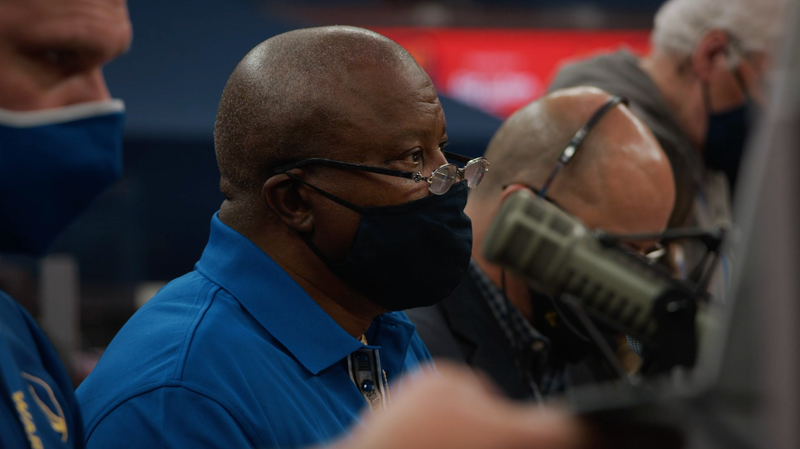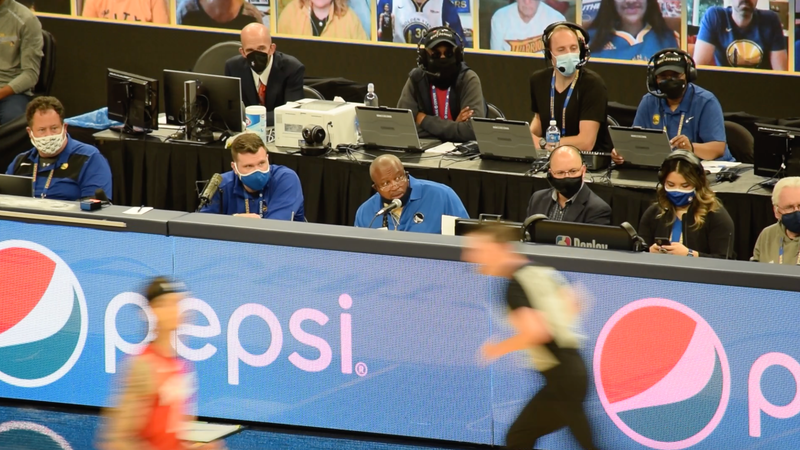Aaron Taylor has come a long way to get to the home of the Golden State Warriors.
Just six months ago, he was incarcerated at San Quentin State Prison. Inside, he was a fixture in the prison's basketball league - calling play-by-play for every San Quentin game.
"Play-by-play at San Quentin gave me a unique identity because nobody else could do what I was doing," Taylor told KCBS Radio.
It earned him the nickname "Showtime."
"Basketball was one of the places I could go and I could hide out," he said. "It was one of the places I could go and not be in prison any more." The league inside San Quentin is serious business, and some of the players might have made a career out of basketball under different circumstances.

"Those guys are good," he explained. "But, like me, they had a bad shake, they made a wrong turn, you know, something happened and they got kicked out of junior college or they got kicked out of Division I, or they was playing semi-pro somewhere and they ended up in prison."
For Taylor, the seeds were planted early. "The first crime I ever committed, my mother took me to do it," he said. "Shoplifting."
He was five years old.
By the time he was arrested after an attempted robbery in his 20s, it was not his first strike. As he prepared to take a plea deal that would put him behind bars for decades, he asked to call his mom. "That was a hard phone call," he recalled. "Because when I told her how much time I was getting ready to take she caught her breath. And I said, ‘Hey you can’t cry. This is the way you raised us.’"
He said that was the beginning of a 26-year rehabilitation process, and basketball was a big part of it.
After serving time in high-level prisons with more restrictions and tougher environments, he transferred to San Quentin, which had more access to rehabilitation and recreation programs. He did not believe it the first time his friend told him that the Golden State Warriors came inside the prison to play against the San Quentin team.
But, when he found out it was true that a team made up of Warriors coaches and managers really was going to be there when he called the games, his play-by-play duties took on a new dimension.
"Every time they came in, I’m looking it as a job interview," he said.
The people on the visiting team were paying attention.

"He had a unique style and flair. We used to look forward to it every year when we played the main game," Kirk Lacob, the Golden State Warriors’ Executive Vice President of Basketball Operations told KCBS Radio.
"In my head I’m like, ‘If i get out of jail, this might be (my) one shot,’" said Taylor.
Last year, as he waited for his chance to go before the parole board, he contracted COVID-19 in the massive outbreak that swept through San Quentin. It took him 21 days to recover.
The day after he was officially virus-free, he had his hearing.
He was found suitable for parole after serving 26 years.
"Those two emotional swings - from being scared to death that I’m not going to get to the board…I caught COVID and people are dying from it - to OK, you ran its course. Then the next day, OK I’m done, we’re getting ready to let you go home. I don’t even know how I got through it to be honest with you," he said.
Just six months later, he got his shot.
After sitting in to watch the announcer perform the public address duties last Friday, Taylor took over behind the Chase Center microphone as the Warriors faced on the Houston Rockets the very next day.
"We had the idea that, you know what? Let’s give this guy a unique opportunity," explained Lacob. "Let’s give him an opportunity to call a Warriors game. Let’s do it in a professional way. Let’s bring him in to learn what it means to be a professional PA announcer, and then let him do it on his own with his own flair."

Taylor knew the opportunity came with a lot of responsibility, too.
"It’s not just me calling the game. I’m taking thousands of people in there with me," he said.
"People who are still incarcerated who don’t get an opportunity to say, ‘I’m sorry’ to the victims and survivors of their crimes, I’m taking them in there with me. I’m taking victims’ rights advocates and survivors’ rights advocates in there with me as well."
Of course, he also took in all of his own dreams of doing what he loves as a career.
"I think it’s going to be a really cool unique experience," Lacob said before the game. "But, I’m also proud of him because Ive known him for so long and to see him get this opportunity to be back out in the real world I think is tremendous. And all I want for him is to have a good life."
"Life is good," Taylor said. "Life is Showtime now."

